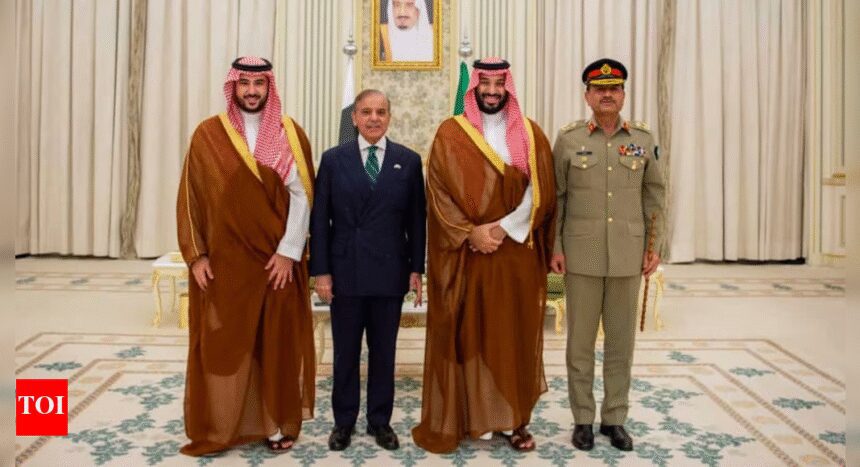The Indian government has responded cautiously to the strategic mutual defense pact signed between Saudi Arabia and Pakistan, stating it is analyzing the implications of this development. The government reiterated its commitment to safeguarding India’s national interests and ensuring comprehensive national security across all domains.
The agreement, which codifies a longstanding arrangement whereby any act of aggression against either nation will be deemed an act against both, may have been influenced by recent events involving Israel in the region. This pact comes just months after India’s Operation Sindoor and aligns with India’s ongoing efforts to establish a “new normal” in its approach towards Islamabad, highlighting that any cross-border terrorism will elicit a military response from India.
Ministry of External Affairs (MEA) spokesperson Randhir Jaiswal indicated awareness of the pact, indicating it had been under consideration. “We will study the implications of this development for our national security as well as for regional and global stability,” he stated.
The agreement was formalized during a meeting in Riyadh between Pakistani Prime Minister Shehbaz Sharif and Saudi Crown Prince Mohammed bin Salman. The timing of the pact coincides with rising concerns within the Gulf region over Israel’s actions, including strikes on Qatar aimed at eliminating Hamas leadership, and doubt regarding the reliability of the United States as a security ally.
Saudi Arabia recently condemned the terrorist attack in Pahalgam, India. A primary concern for India is how Pakistan might leverage its new agreement with Saudi Arabia during any military escalation, especially given India’s position that any terrorist attacks will be considered an act of war. The joint statement from Saudi Arabia and Pakistan emphasized their mutual commitment to enhancing security and deterring aggression, though the details were not extensively elaborated.
For Saudi Arabia, engaging with Pakistan carries weight as Islamabad is a nuclear-armed state, although Pakistan asserts that its nuclear capabilities are primarily focused on countering India. In response to potential nuclear threats from Pakistan, India maintains that such tactics will not deter its response to terrorist acts.
The MEA noted that Saudi-Pakistan defense cooperation has a long history, dating back to the 1960s, with Pakistan training Saudi soldiers and previously stationing troops there during the Iran-Iraq War. Although there have been challenges in their partnership, such as Pakistan’s refusal to join a Saudi-led military operation in Yemen in 2015, the relationship has persisted.
Indian officials stated that the country will await further details before reaching conclusions about the potential impacts of the pact while acknowledging improving relations with Riyadh, particularly in defense and security sectors. A Saudi official indicated that the agreement encompasses various military means, potentially including Pakistan’s nuclear deterrent for Saudi Arabia, but reaffirmed that the relationship with India remains robust and is expected to continue to grow.
Analysts have observed that Riyadh’s decision to sign the pact likely stems from its insecurity over Israel’s conduct, suggesting a secondary consequence may result in increased financial resources for Pakistan. India intends to monitor closely any domestic impacts stemming from a possible coalition among Muslim states.
India’s commercial ties with the Gulf remain strong, likely insulated from shifts stemming from this pact. Prime Minister Narendra Modi’s condemnation of Israeli actions against Qatar exemplifies India’s commitment to regional stability. Moreover, maritime cooperation exists between India and Saudi Arabia, exemplified by their first joint land force exercise, EX-SADA TANSEEQ-I, conducted last year, and agreements for defense exports from India to Saudi Arabia. Saudi Arabia ranks among India’s key trading partners, especially for crude and petroleum products.










